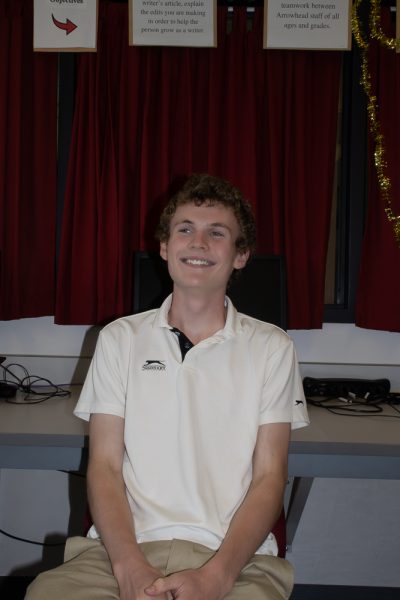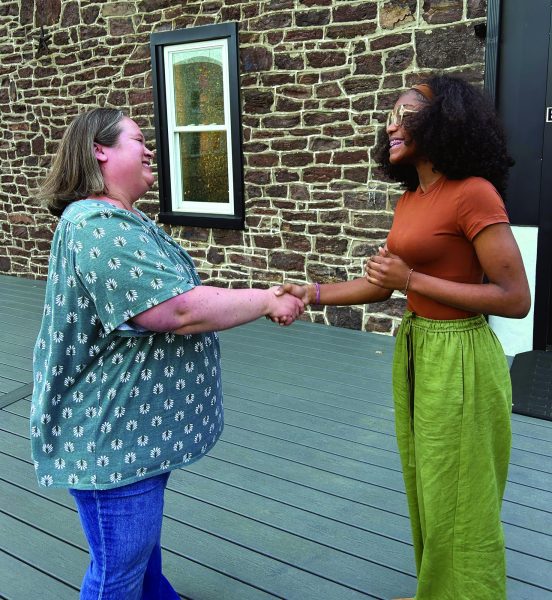Mental health focus groups promote student wellbeing
By piloting a new program, faculty seek to create a culture of mental wellbeing at the high school. Taking place during fifth blocks, the program will explore new ways for students to deal with stress.
As part of the growing conversation around students’ mental health, assistant principal Michelle Noga and physical education teacher Chris Nenstiel are piloting a new program at the high school that aims to give students a space to step away from the chaos of everyday school life.
The World Health Organization reports up to one in seven young people struggle with mental health disorders or issues.
According to Nenstiel, waiting lists for mental health services such as counselors and therapists are often up to months long.
As a result, her and several other faculty members came together to ask what they could do to support their students.
“We started to talk about, would there be a way, maybe in our own building, that we can start to help and support kids and faculty members,” Nenstiel said, “to try to come alongside them, support them, give them more tools to deal with stress.”
The issue of high school students’ mental wellbeing is a subject that has recently been gaining traction in schools across the country.
Nenstiel and Noga were inspired to implement this program following a visit to Liberty High School in Bethlehem, Pennsylvania.
The school has recently begun a school-wide program which aims to create a school environment that prioritizes students’ mental wellbeing.
The Liberty High School administration hopes to achieve this through the creation of a physical space. This space will allow students who are feeling overwhelmed or struggling to take some time to pause and catch their breath. This sentiment is shared by Noga, whose long-term aims for the program at Souderton include the implementation of a similar space.
In the short-term, however, Noga plans to use the fifth block focus groups to explore different ways students can alleviate stress.
“Not everyone might want to come into a room that’s quiet, and have to sit there and you’re just practicing breathing,” Noga said. “That space may also need to have a treadmill or a bike or something.”
According to Noga, mental health is a highly personal issue.
One person may have completely different coping mechanisms.
“That’s part of our hope with the focus rooms is to start understanding that everyone might need the break, but everyone’s break might look different,” Noga said.
According to the mental health organization The Light Program, students can experience mental health issues for a variety of reasons.
One of the most common causes behind a student’s lack of mental wellbeing is a feeling of intense pressure regarding school. Some students can become unhealthily obsessed with maintaining a high GPA and grades, which can lead into feelings of high stress.
“If there was less focus on grades and what they mean, I feel like that would foster a better school environment,” senior Simon Hershberger said. “I see why the school system does it, but I think that creates a lot of stress.”
The focus groups will continue to run during fifth blocks in A150 for those interested.






